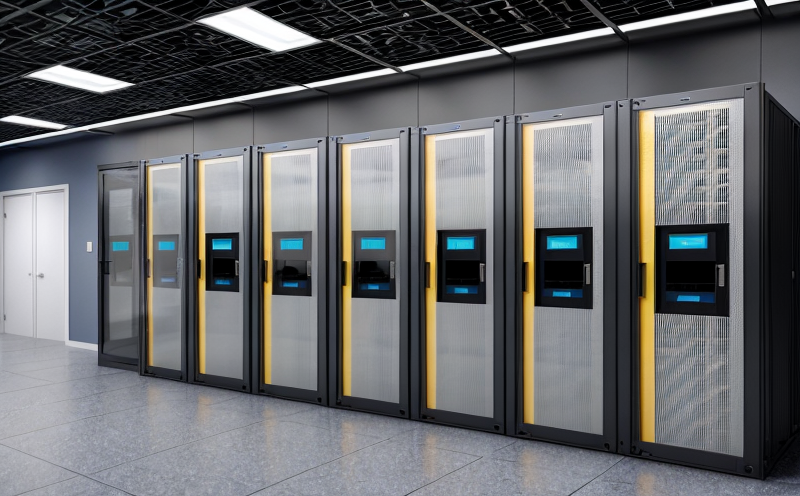Data Center Certification Audit Process: Ensuring Compliance and Excellence
In todays digital age, data centers are the backbone of modern businesses, providing a secure and reliable environment for storing and processing sensitive data. As such, it is essential to ensure that these facilities meet rigorous standards to maintain compliance with industry regulations and best practices. One way to achieve this is through certification audits, which verify an organizations adherence to established criteria and guidelines.
The Importance of Data Center Certification
Data center certification is not just a matter of ticking boxes; it is a critical aspect of maintaining the integrity and trustworthiness of sensitive data. Certification ensures that data centers adhere to industry standards and best practices, providing assurance that the infrastructure and operations are secure, efficient, and compliant with regulatory requirements.
Here are some benefits of data center certification:
Enhanced reputation: Certified data centers demonstrate a commitment to excellence, which can lead to increased customer trust and loyalty.
Compliance: Certification ensures adherence to industry standards and regulations, reducing the risk of non-compliance fines and penalties.
Risk reduction: A certified data center is better equipped to mitigate risks associated with infrastructure failures, security breaches, and natural disasters.
Improved operational efficiency: Certification drives continuous improvement in operational processes, leading to increased efficiency and reduced costs.
The Audit Process: A Step-by-Step Guide
A certification audit involves a thorough examination of an organizations data center operations, infrastructure, and management practices. The following steps outline the typical audit process:
1.
Pre-audit preparation: The certified body (e.g., Uptime Institute, TIA-942) provides the organization with guidelines on what to expect during the audit.
2.
Audit team selection: A team of auditors is appointed to conduct the audit, which typically includes a lead auditor and supporting staff.
3.
On-site assessment: The audit team conducts an on-site inspection of the data center, reviewing documentation, observing operations, and inspecting infrastructure.
4.
Interviews with personnel: Auditors interview key stakeholders, including management, IT teams, and maintenance personnel, to assess their understanding of certification requirements.
5.
Documentation review: A comprehensive review of policies, procedures, and documentation is conducted to verify compliance.
Detailed Audit Criteria: Understanding the Uptime Institutes Tier Standard
The Uptime Institutes Tier Standard is a widely accepted industry benchmark for data center design and operation. Here are some detailed audit criteria related to Tier III certification:
Availability: Data centers must demonstrate a maximum of 26 minutes per year (or less) of scheduled downtime, with no more than four occurrences in a 12-month period.
Capacity planning: The data center must have the capability to support future capacity growth and expansion without compromising performance or availability.
Here are some key points to note about Tier III certification:
Multiple path design: Data centers must have multiple paths for power distribution, cooling, and communication systems to ensure redundancy and minimize downtime.
N1 redundancy: Power and cooling systems must be designed with N1 redundancy (i.e., one extra unit in operation beyond the minimum required).
Redundant electrical sources: A data center must have redundant electrical sources, including generators, transformers, and uninterruptible power supplies.
Detailed Audit Criteria: Understanding TIA-942 Certification
TIA-942 is a standard for designing, building, and operating data centers. Here are some detailed audit criteria related to Tier IV certification:
Availability: Data centers must demonstrate an uptime of 99.999 (or less) per year, with no more than one minute of downtime in any 12-month period.
Redundancy planning: The data center must have multiple levels of redundancy for all critical systems, including power distribution, cooling, and communication.
Here are some key points to note about TIA-942 certification:
Redundant path design: Data centers must have redundant paths for power distribution, cooling, and communication systems.
N2 redundancy: Power and cooling systems must be designed with N2 redundancy (i.e., two extra units in operation beyond the minimum required).
Multiple electrical sources: A data center must have multiple electrical sources, including generators, transformers, and uninterruptible power supplies.
QA: Additional Insights into Data Center Certification Audits
1. Q: What is the difference between Uptime Institutes Tier Standard and TIA-942 certification?
A: While both standards are widely accepted in the industry, they have distinct requirements for design and operation. The Uptime Institutes Tier Standard focuses on availability and capacity planning, whereas TIA-942 emphasizes redundancy and reliability.
2. Q: What is the typical duration of a data center certification audit?
A: Audit durations vary depending on the size and complexity of the facility. On average, audits can last anywhere from several days to several weeks or even months for large-scale operations.
3. Q: Can I schedule an audit at any time, or are there specific requirements that must be met beforehand?
A: It is essential to prepare your organization before scheduling an audit by ensuring all documentation and operational processes meet certification standards. Some certified bodies may also require a site visit before conducting the formal audit.
4. Q: Will a data center certification audit disrupt normal operations?
A: Audits are designed to minimize disruptions, but some level of disruption is inevitable. Ensure that you communicate with stakeholders and staff during this period to maintain business continuity.
5. Q: Can I obtain data center certification without undergoing an on-site audit?
A: No, most certified bodies require an on-site audit as part of the certification process. However, there may be exceptions for smaller facilities or those meeting specific requirements.
6. Q: What are some common pitfalls during a certification audit that organizations should avoid?
A: Failing to document procedures, inadequate training, and non-compliance with industry standards are some common issues that can lead to audit failures.
In conclusion, data center certification audits play a critical role in ensuring the reliability, security, and efficiency of modern businesses. By understanding the importance of certification, following a structured audit process, and addressing detailed criteria related to Tier III and TIA-942 certifications, organizations can maintain compliance with industry standards and best practices.

































